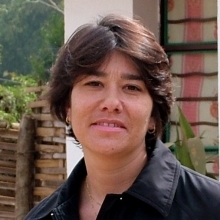This one year pilot study will assess and describe risk behavior for HIV among African migrants living in Guangzhou, China and develop feasible methods for sampling, recruiting, surveying, and testing for HIV and STI risk and infection so we can design further studies to assess HIV risk among this population and design appropriate interventions. It is estimated that 100 to 200 thousand Africans migrants live in Guangzhou but only 60,000 are registered to live there legally. The remainder are unauthorized to stay in China and often live in hiding in fear of arrest and heavy fines assessed on foreigners living in China without documentation.
This liminal state increases their vulnerability to disease, including HIV, particularly among female traders who turn to sex work to support themselves. Interventions are necessary but we lack the data on this hidden and previously unexplored population to develop tailored programs for their distinct needs. Using systematic observation and semi-structured in-depth interviews this pilot project will assess the size and location of our target population, determine the most appropriate mechanism for accessing and recruiting a representative sample of the population, identify the range of risks that can create vulnerability to HIV infection among migrants living in Guangzhou, and describe how migration affects this risk. This timely study responds to an urgent need to address the health related challenges of the growing African community in Guangzhou.
The study is significant because it will be the first exploration of risk among a new and growing population that has both the potential for HIV acquisition and the capacity to transmit HIV within their own community and across to other global populations. It is innovative in how it considers migration in and of itself as a determinant of HIV risk rather than simply associating risk for HIV among migrants with behavioral or cultural forces. It also offers a novel focus on south-south migration as an alternative yet growing form of international migration whose implications are under-recognized and not understood. Findings from this research agenda will uncover structures that increase vulnerability for HIV infection among mobile migrant populations, allowing the results to have far-reaching implications for HIV prevention among global migrants.


